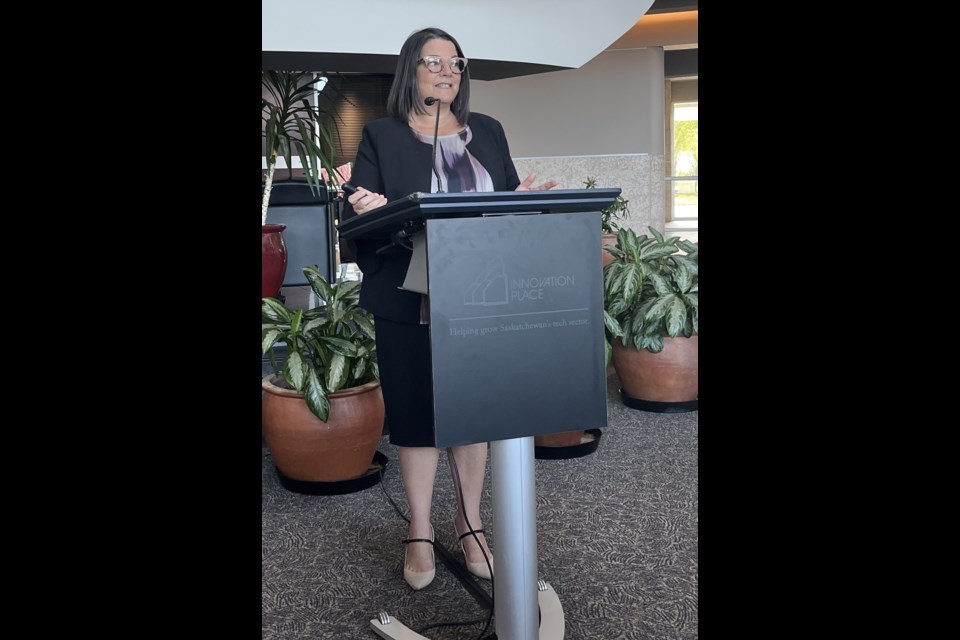MOOSE JAW — A provincial organization focused on science and technology has recognized Moose Jaw’s efforts to use innovative online software to preserve community history and the stories that accompany that heritage.
Innovation Saskatchewan hosted a breakfast recently to celebrate Innovation Week and welcomed Jessica McNaughton, CEO/founder of , as the guest speaker.
McNaughton, in turn, invited Janie Fries, vice-chairwoman of the heritage advisory committee, to share Moose Jaw’s experiences participating in memoryKPR’s province-wide storytelling pilot project in 2024. The committee focused on collecting stories, videos and pictures about heritage sites, such as city hall, Temple Gardens Spa and wartime homes, and uploading them online.
The pilot project gave 40 communities — Tourism Moose Jaw also participated — online tools, access to guest speakers, training to develop their storytelling capabilities, and the ability to connect with other municipalities.
In an interview, McNaughton said it was an honour to speak during the breakfast, while it was a great way for Innovation Saskatchewan to showcase her company.
The tech CEO/founder noted that Innovation Saskatchewan’s support is valuable since people who invest in her start-up company can receive a tax break. This is “pretty sweet,” while it makes it easier to convince people to support the business.
Meanwhile, the pilot project was “very successful,” while the digital storytelling efforts are continuing and communities are renewing their software partnership, said McNaughton. The program is similar to a muscle that municipalities are still remembering to use, while the company often encourages them to incorporate digital storytelling in buildings.
McNaughton explained that after living elsewhere for two decades, she returned to Moose Jaw several years ago because of the “rich history” and the feeling that people are part of something bigger in a small community.
“It’s an honour to … be a part of telling the stories that I grew up with and getting to see them come to life and get more people having more access to them,” she said.
During the event, McNaughton spoke about the outcomes of the pilot project and how some communities used QR codes to tell stories about buildings and record visitors’ thoughts or used the platform to tell indigenous stories.
“Some communities are using us to create digital history books … ,” she said, adding that the pilot project is over in Saskatchewan but will soon launch across Canada with a focus on artwork and murals.
Fries said she was honoured to speak since it indicated that the heritage committee was going in the right direction. Moreover, the group is taking advantage of the available technology to help it “do what we are passionately interested in, and that is making Moose Jaw’s history accessible to everybody.”
The committee is still using QR codes to tell in-depth stories about buildings, she continued. Tourists or residents can also upload their own stories — and further others’ historical understanding — if they visited a building, worked there or “had an adventure there.”
Using this technology could encourage more young people to learn about community history, especially since the platform is easy to use, added Fries.
Meanwhile, the future looks bright for memoryKPR, as it is growing in Saskatchewan and British Columbia, said McNaughton.
She pointed out that there is a heavy focus on supporting Canadian companies because of the tariff issue, and since her start-up has no national competitors, the goal is to continue promoting its services nationwide.
She added that her business is different from other social media because it protects users’ data and doesn’t sell it, while it can help bridge divisions in communities through storytelling.
Visit for more information about memoryKPR’s services.




